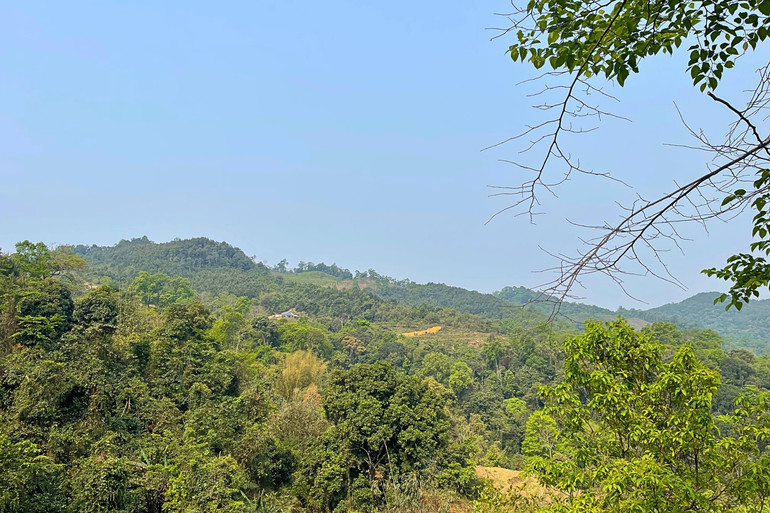
A historical journey through Lung Sao.
In 1945, the world situation underwent many changes. World War II was nearing its end, and domestically, Japan had overthrew the French. This presented an extremely favorable opportunity for the Vietnamese revolution to lead the entire nation in an uprising to seize power. Faced with the urgent demands of the revolution, leader Nguyen Ai Quoc decided to leave Pac Bo (Cao Bang) and move to Tan Trao (Tuyen Quang), which was chosen as the center for directing the nationwide general uprising.
At approximately 9:00 AM on May 4, 1945, President Ho Chi Minh and his comrades in the working group left the Khuoi Nam hut (Pac Bo) and began their historic journey. By late afternoon on May 10, 1945, the group arrived in Bac Kan province and stopped for the night in Lung Sao village, Bang Van commune – a small Dao ethnic village with about 10 households. Here, President Ho Chi Minh was accommodated at the house of Mr. Ban Tai Ven; the other members of the group stayed in scattered houses nearby.
Despite the remote location, far from the main road, the stopover ensured absolute safety for Uncle Ho and his delegation. Before dinner, Uncle Ho did not forget to thank the local people for their hospitality. After the meal, he took the opportunity to chat and discuss work with local officials for about an hour. Early the next morning (May 11, 1945), in the damp weather, the delegation continued their march through the rugged mountains and forests to Thuong An commune, with the next stop being Hoang Phai village, Coc Dan commune.
President Ho Chi Minh's stay at a villager's house in Lung Sao was a significant historical event during the arduous period of revolutionary activity, marking the patriotic spirit and revolutionary consciousness of the local people, and a great honor for the Dao ethnic people in Lung Sao in particular and the people of Bang Van commune, Ngan Son district in general.
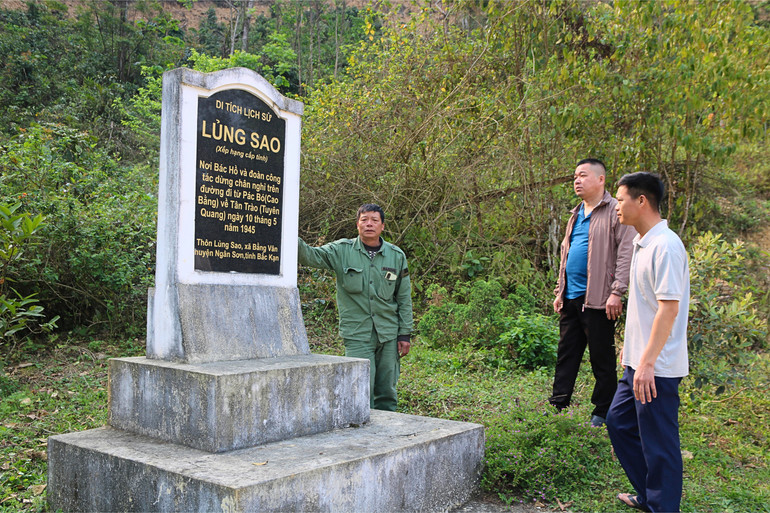
Red address for revolutionary tradition education
Lung Sao village, now Vi Ba village, in Bang Van commune (Ngan Son district), is home to Dao, Tay, Nung, and Hoa ethnic groups. From the center of Bac Kan city, follow National Highway 3 towards Cao Bang for about 77km, then turn left at the top of Cao Bac pass and go another 2km to reach the historical site. Vi Ba village is located nearly 10km from the commune center, quite isolated amidst the mountains and forests.
Comrade Ban Van Thang, Secretary of the Vi Ba Village Party Branch, shared: "Over the years, thanks to the attention of the Party and the State, the transportation infrastructure in the village has gradually improved. However, the lives of the people are still difficult, and the poverty rate remains high. Despite this, the people always trust and strictly abide by the Party's guidelines and policies, and the laws of the State."
Currently, the only remaining trace at the Lung Sao historical site is a stone stele inscribed with the words: "The place where President Ho Chi Minh and his delegation stopped to rest on their way from Pac Bo to Tan Trao, May 10, 1945." Near the stele is the foundation of an old house believed to have belonged to the Ban Tai Ven family, where President Ho Chi Minh and his delegation stayed. Although the original structures no longer exist, the local people and authorities cherish and preserve the site, regularly organizing incense offerings and cleaning the area on major holidays.
Comrade Nong Hong Quang, Secretary of the Party Committee and Chairman of the People's Council of Bang Van commune, shared: "The fact that President Ho Chi Minh once stayed in Lung Sao village is a great honor and source of pride for the local Party Committee, government, and people. Recognizing this profound historical significance, over the years the commune has focused on economic development, poverty reduction, and new rural construction, achieving many positive results."
The Lung Sao historical site was recognized as a provincial-level historical site by the Provincial People's Committee on April 25, 2019. It is one of the few places in the province associated with President Ho Chi Minh's contributions to history, becoming a "red address" in the education of revolutionary traditions for the younger generation.
Source: https://baobackan.vn/lung-sao-ghi-dau-chan-bac-post70530.html

























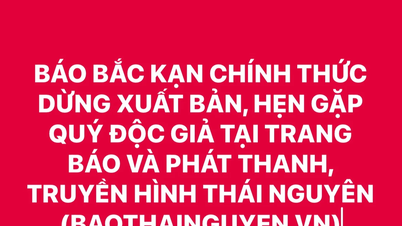
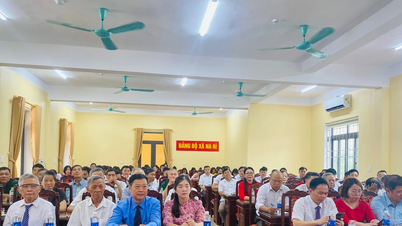
![[Update] Announcement Ceremony for the Merger of Provincial and Commune-Level Administrative Units in Thai Nguyen and Bac Kan Provinces](https://vphoto.vietnam.vn/thumb/402x226/vietnam/resource/IMAGE/2025/6/30/0de85cb56da843d897e30016b57b1412)
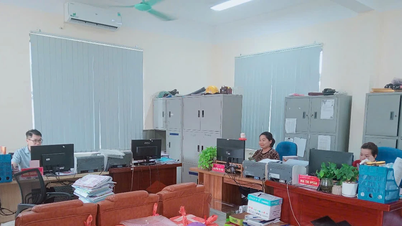
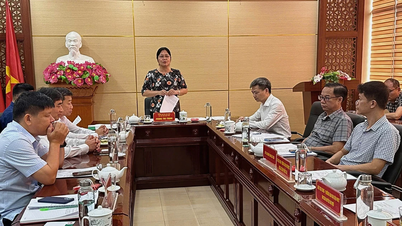
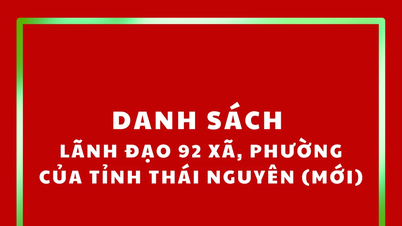

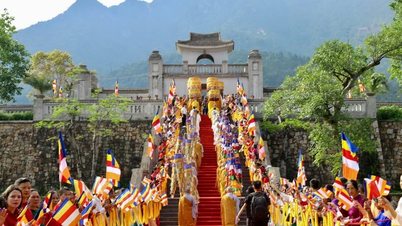

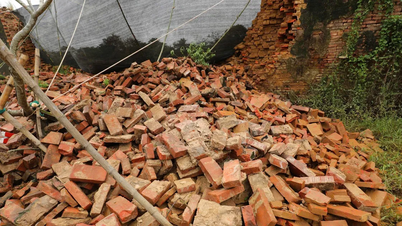
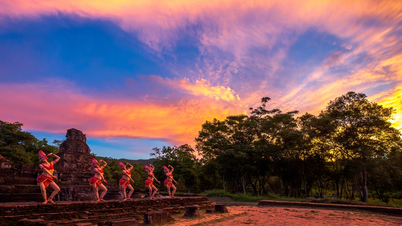





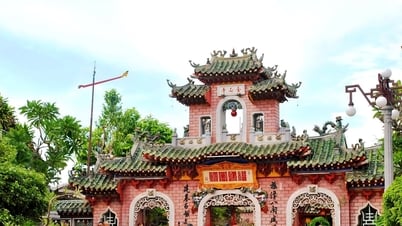



























































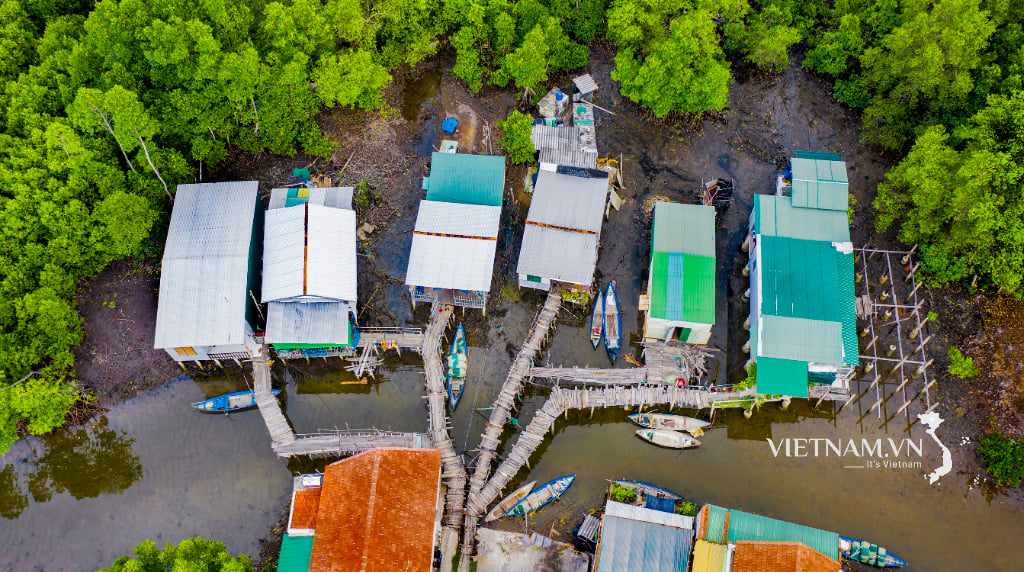

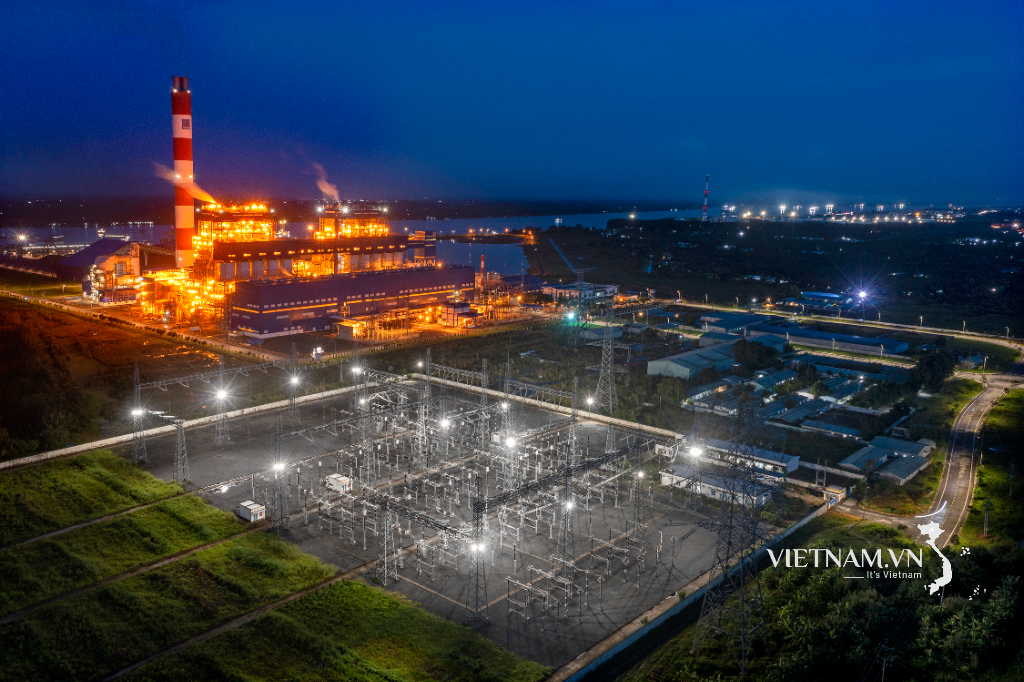
Comment (0)